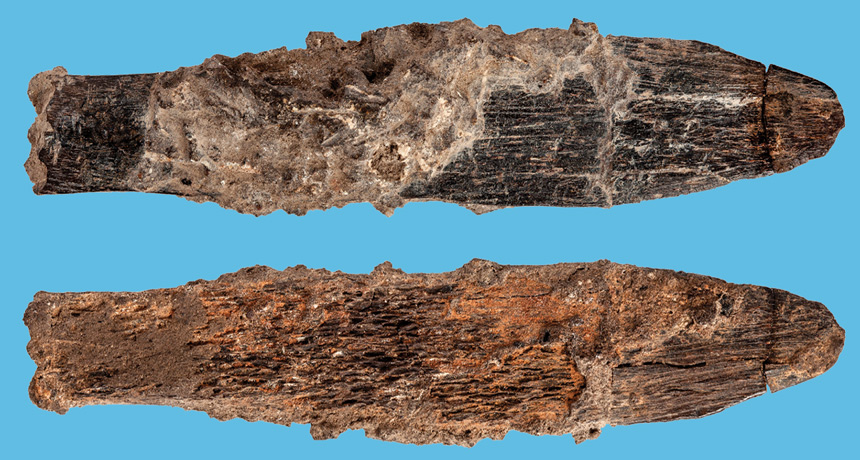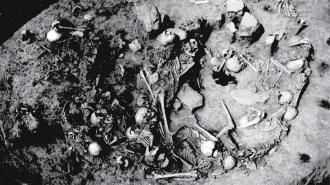A 90,000-year-old bone knife hints special tools appeared early in Africa
Archaeologists found the implement in a coastal cave in Morocco

CUTTING EDGE The discovery of a 90,000-year-old knife made of animal bone (shown here from both sides) in Morocco points to the ancient emergence of specialized toolmaking in northern Africa.
© Trustees of the Natural History Museum, London (2018), S. Bello and Mohammed Kamal (Fotokam, Morocco)







